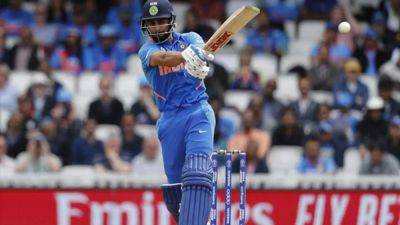Quinn, Rodriguez among players wearing protective collar at Women's World Cup
SYDNEY : Several players at the Women's World Cup are among the latest athletes spotted wearing concussion collars, which are intended to protect the brain during head impact.
Canada's Quinn and Rocky Rodriguez of Costa Rica are sporting what is called a Q-Collar and looks like a headband but worn around the back of the neck.
Concussions have hurt Australia at the global tournament, with Mary Fowler and Aivi Luik missing their 2-1 loss to Nigeria on Thursday after they sustained minor concussions in training two days earlier.
According to the U.S. Food and Drug Administration (FDA), which authorised marketing of the Q-Collar in 2021, when players experience head trauma, the brain moves unrestrained in the skull, known as "slosh."
The FDA said the collar "provides compressive force to the internal jugular veins, which in turn increases the blood volume in the skull's blood vessels."
The NFL's Shaq Thomson of the Carolina Panthers and Tony Pollard of the Dallas Cowboys are among other athletes who wear the collar.
While the FDA warned against wearing the collar as a replacement for other protective gear, it is understandable soccer players would seek out added protection given the results of studies on long-term brain impairment.
Researchers recently found evidence suggesting that repetitive heading of balls during a professional soccer career is associated with a higher risk of cognitive impairment in later life, according to a study commissioned by England's Football Association (FA).
The independent research study, jointly commissioned by the Professional Footballers' Association (PFA), was conducted by the University of Nottingham and spoke to over 450 retired professional footballers over the age of 45.
The first findings of








